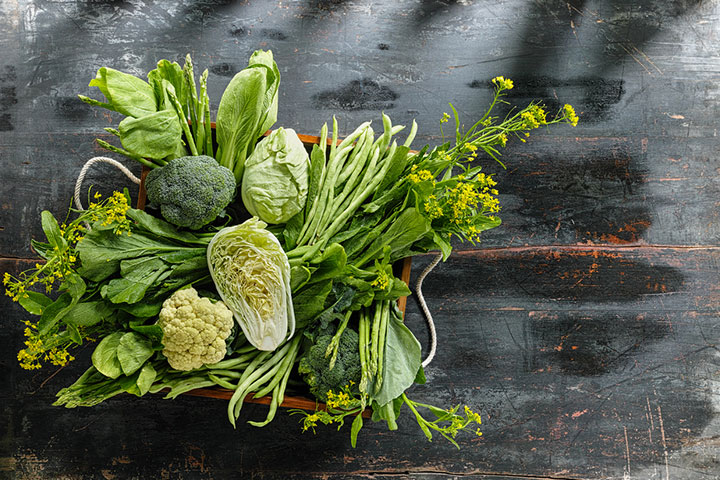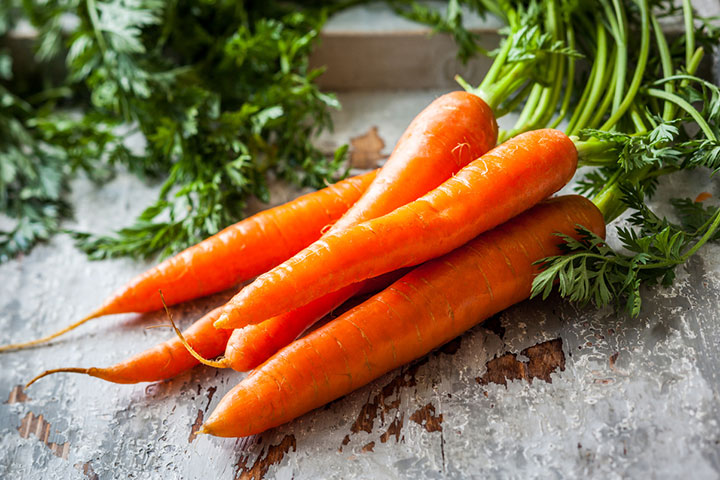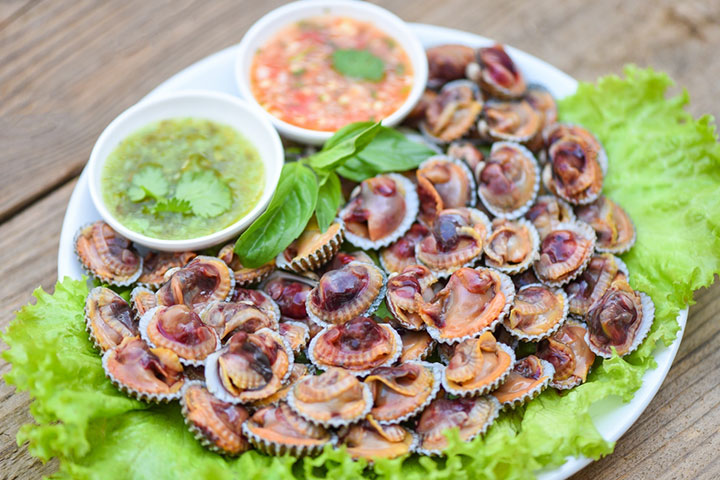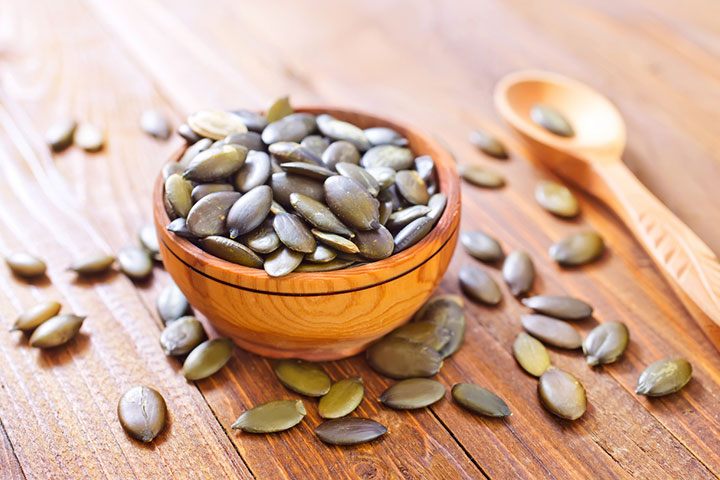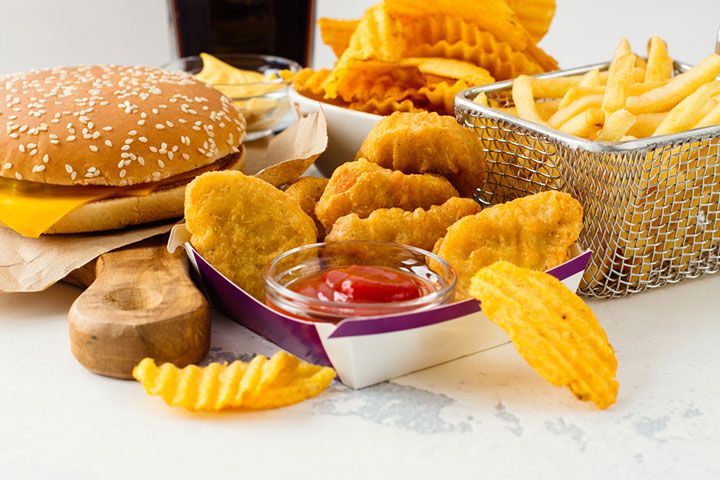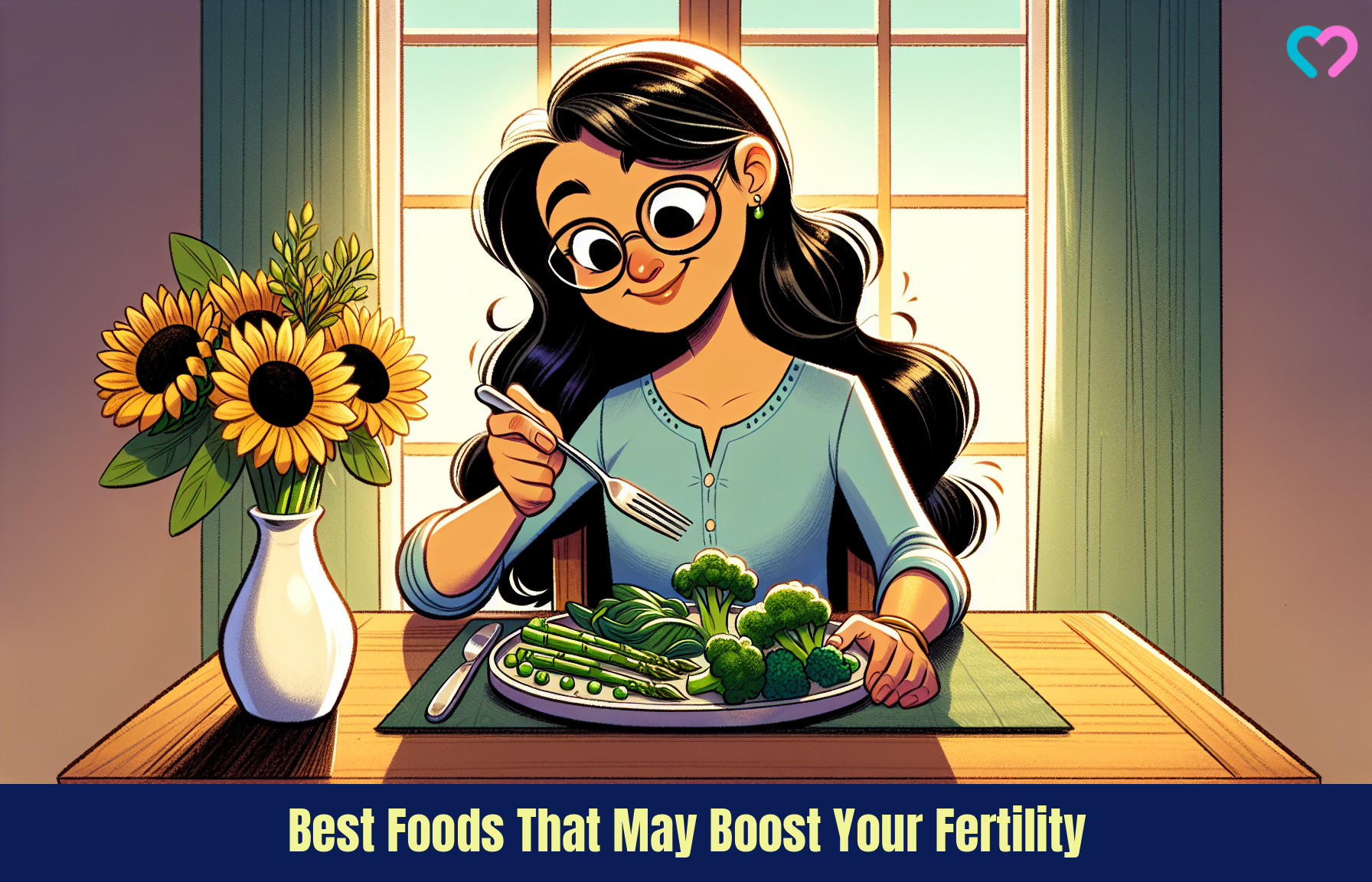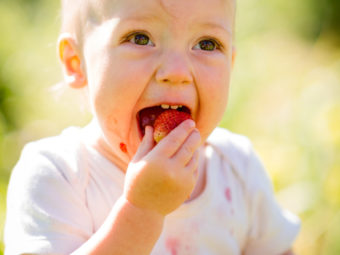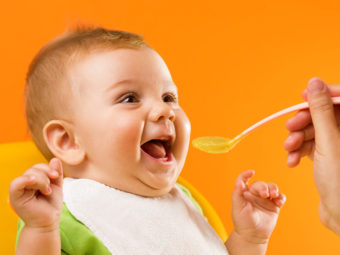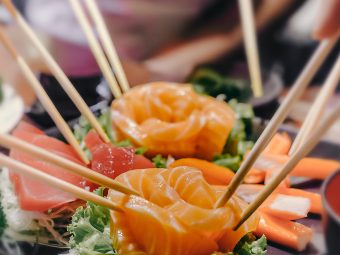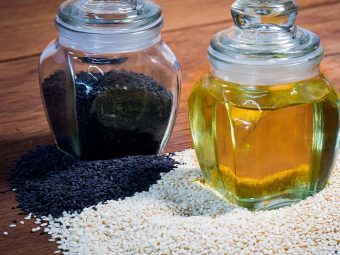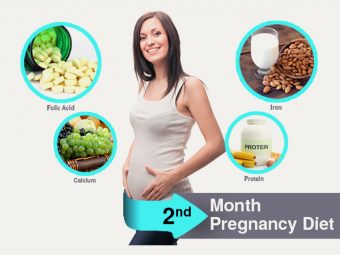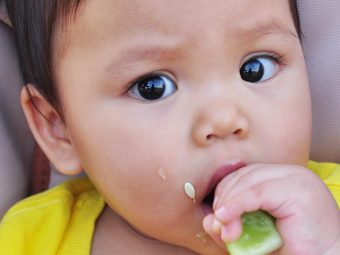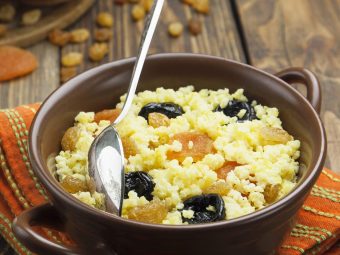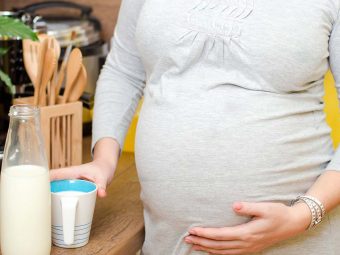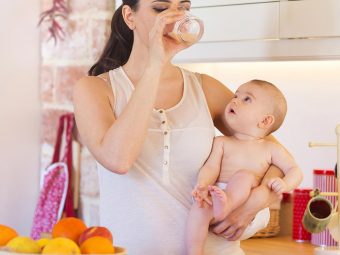
Image: iStock
If you are planning a pregnancy but have trouble conceiving, you might want to know about certain fertility-improving procedures. And you might be surprised to learn that there are some foods that increase fertility in both men and women.
So, if you live a healthy lifestyle and have a good sex life, it’s time to add fertility-supporting food to your diet so you can get the good news sooner. This post includes a list of fertility foods that can help you conceive faster. We also tell you more about the fertility diet and how certain nutrients boost conception. Read on.
What Is A Fertility Diet?
A fertility diet comprises foods that support your reproductive system by regulating ovarian function and improving your chances of conception. These fertility foods contain the nutrients that are necessary for hormonal balance, and sperm and egg health. A fertility diet plays an important role in providing a healthy start to your future child.
Before you know about the foods to eat for fertility, let’s see the nutrients that are essential for a robust reproductive system.
Fertility-boosting Nutrients
Here is how various nutrients play their part in helping you conceive (1):
- Beta-carotene, a phytonutrientiXChemical compounds produced by plants that are necessary for their healthy growth. , regulates the hormones and improves fertility levels in men (2).
- B vitamins support your ovaries during ovulation and also help avoid miscarriages. Folic acid is necessary to avoid neural birth defectsiXBirth defects of the brain, spine, or spinal cord that develop early during pregnancy. in babies.
- Vitamin C aids in progesterone absorption and helps women with luteal phaseiXSecond phase of the menstrual cycle occurring between ovulation and the period. defects.
- Vitamin D helps in improving fertility in both the partners. It plays an important part in treating fertility impairments like uterine fibroidiXNon-cancerous growth in the uterus during childbearing years. and PCOS, and improves semen parameters such as semen quality in men (3).
- Vitamin E boosts egg and sperm health.
- Iron decreases the chances of ovulatory infertility (4).
- Omega 3 fatty acids help improve sperm count and mobility as well as increase blood flow in the uterus (5, 6).
- AntioxidantsiXMan-made or natural substances that may prevent or slow down cell damage caused due to harmful molecules called free radicals. prevent as well as treat infertility.
- Zinc and selenium (7) improve sperm quality.
- High-fat dairy foods could decrease the risk of anovulatory infertilityiXInfertility due to the failure to release ovum from the ovary during the menstrual cycle. (8).
All the nutrients are present in fertility foods that include vegetables, fruits, nuts, cereals and dairy products. Let’s know more about them in the next section.
 Research finds
Research findsList Of Fertility Foods
Here are some foods you might want to add to your diet:
I. Vegetables: Vegetables are a rich source of folic acid and vitamin C.
1. Green leafy vegetables:
Image: IStock
- Spinach, Swiss chard, kale and other dark green leaves are a rich source of folic acid
- Help in improving ovulation, producing good quality sperms and reducing the chances of miscarriage or genetic abnormalities
2. Broccoli:
- Is a rich source of vitamin C and folate, which are essential for the ovulation process
3. Brussels sprout:
- High in folic acid
- Helps maintain the uterine lining and enhance the chances of sperm survival
4. Cabbage:
- Perfect food for women who have fertility issues
- A good source of Di-indole methane, which helps prevent endometriosisiXA health condition characterized by the growth of endometrial-like tissue outside the uterus. and fibroids
5. Potatoes:
- Baked potatoes are an excellent inclusion in your fertility diet
- High in vitamin C and effective in treating luteal phase defects (9)
6. Tomatoes:
- A rich source of lycopene (10)
- Lycopene helps in improving the sperm count and increasing its swimming speed (10)
7. Carrots:
Image: IStock
- A great source of beta-carotene
8. Yam:
- Contains phytoestrogensiXPlant-based organic substances that may mimic estrogen in the body. , which stimulate egg-release from the ovaries and help treat luteal phase defects in women.
II. Fruits: Fruits are the best source of antioxidants, which are necessary for fertility. Here is the list of fruits you may consume for improving fertility.
9. Pomegranate:
- A good source of vitamin C (11)
- Helps increase the libido
10. Avocado:
- High in folate, vitamin E, fiber, minerals, and essential fats
- Vitamin E helps in maintaining the uterine lining
11. Banana:
- A rich source of vitamin B6 and potassium
- Aids in improving fertility by regulating the hormones and improving egg and sperm quality
12. Berries:
- Such as raspberries and blueberries are rich in folate and vitamin C
- Boost both male and female fertility
III. Non-vegetarian foods: These foods include meat, fish, and egg, which are a rich source of omega-3 fatty acids.
13. Eggs:
- High in omega-3 fatty acids, folic acid, choline and vitamin D
14. Shellfish:
Image: Shutterstock
- This seafood is packed with vitamin B12
- Helps in strengthening the endometrium liningiXInnermost layer of the uterus. in women, and increase the sperm count in men
15. Oyster:
- It is also a good source of vitamin B12.
16. Salmon:
- Rich in omega 3 fatty acids
17. Lean meat (chicken/beef):
- A good source of iron, and essential fatty acids.
IV. Dairy products: Rich in calcium, good fats, and vitamin D, the dairy products are an essential food for improving fertility in couples who want to conceive faster. Here is the list of dairy products and their importance in improving fertility.
18. Whole milk:
- High in calcium and good fats.
 Point to consider
Point to consider19. Greek yogurt:
- An excellent source of calcium, probiotics, and vitamin D.
V. Herbs and Spices: They maintain estrogen balance, thus supporting your fertility.
20. Maca:
- A good source of amino acids and glycosides, which help increase libido in both the partners.
21. Turmeric:
- Rich in antioxidants
- Helps treat menstrual related issues
22. Garlic:
- Is a fertility-boosting spice rich in antioxidants (12)
- It helps increase spermatogenesis.
- Diallyl disulfide present in garlic helps protect the sexual organs by reducing harmful substances, strengthening a protective barrier, and improving blood flow to the testicles.
VI. Oils and Oilseeds: Apart from the vegetables, fruits, and meat the seeds and their oils also play a vital role in improving the chances of conception. Here a few to list:
23. Olive oil:
- Contains monounsaturated fats, which help in reducing inflammation inside the body and increase insulin sensitivity in a woman’s body
- Improves fertility in couples who have undergone IVF treatmentsiXAn assisted reproductive technique where eggs and sperm are processed to form an embryo outside of the body, usually in a lab.
24. Pumpkin seeds:
Image: IStock
- A rich source of zinc (13) content that aids in maintaining a healthy reproductive system
- Zinc helps in increasing testosterone and semen level and promotes blood flow to the reproductive organs
- Also helps in producing mature eggs
25. Flax seeds:
- Rich in omega 3 fatty acids and lignins.
- Lignin plays an essential role in reducing the fibroid size and boosts fertility.
26. Sunflower seeds:
- A rich source of zinc.
VII. Dry fruits: You may add the below dry fruits to improve your fertility.
27. Almond:
- Rich in vitamin E and omega 3 fatty acids
28. Walnut:
- High in omega 3 fatty acids, magnesium, and fiber
- It helps improve sperm motility and vitality
VIII. Other foods:
29. Quinoa:
- A gluten-free whole grain rich in fiber, folate, protein, and zinc
30. Lentils and beans:
- Rich in plant-based proteins, fiber and vitamin B
31. Whole grains:
- Includes brown rice, millet, barley, etc.
- A rich source of fiber and regulates blood sugar level, thereby maintaining the folic acid level to boost fertility.
32. Cod-liver oil:
- A rich source of omega 3 fatty acid and vitamin D.
Apart from the foods mentioned, incorporating certain ingredients like ashwagandha, maca root, and vitex (chasteberry) in your diet may also enhance specific aspects of fertility. While some foods improve your fertility, some others have a negative effect on it. Therefore, you need to avoid such foods.
Foods To Avoid For Conception
If you are planning a pregnancy, then make sure not to eat foods that reduce the chances of conception. Here is the list of such foods (14) (15) (16) (17):
- Foods with high pesticide residue, such as strawberries, spinach, peppers, or grapes, reduce your chances of getting pregnant (18).
- Seafood, such as swordfish, king mackerel, shark, and tilefish, which are high in mercury content. High mercury content can lead to infertility and miscarriages.
- Foods high in trans fats like baked foods, fried and processed foods, which can affect ovulatory infertility.
Image: Shutterstock
- High intake of carbohydrates can also lead to ovulatory infertility. Similarly, very low intake of carbs can also contribute to infertility by affecting the insulin and testosterone level. Also, foods with less refined carb like sugary foods and processed grains can increase the blood sugar level causing ovulatory infertility.
- High intake of caffeine can lead to miscarriages and also increase the risk of infertility.
- Drinking and smoking can also have a negative impact on fertility.
- Soy products contain phytoestrogens that can lead to infertility.
Fab and Ell, parents of twins, reflect on their journey to conceive after dealing with fertility issues. Ell elaborates, “He (Fab) pretty much stopped drinking alcohol entirely. I don’t drink either, so we both cut down our alcohol intake. We also don’t smoke because that can have a huge impact on fertility, especially for males.” The couple also reduced their caffeine intake to improve their chances of conceiving (i).
 Quick fact
Quick factFrequently Asked Questions
1. Does the fertility diet work?
A fertility diet increases the chances of conception in people with fertility problems related to eating disorders. According to Harvard researchers, anovulatory women due to eating disorders had improved fertility rates after following specific fertility diets. There have been positive effects on women who have not strictly followed the diet (19).
2. How can I increase my fertility naturally?
A well-balanced diet and a healthy lifestyle such as exercising can improve fertility. Avoiding stress and controlling PCOSiXFemale hormone disorder affecting their ovaries. and other inflammatory disorders can also improve fertility (20).
3. What role does alcohol play in male and female fertility?
Consumption of the right nutrients is the answer to most health problems, and fertility issues are no exception. If you are struggling to conceive, you should include the vitamins and minerals that can increase your chances of pregnancy in your diet. Different vitamins such as vitamins B, C, and D and minerals such as iron, zinc, and selenium can help men and women improve their fertility. In addition, including foods that increase fertility, such as leafy vegetables, fruits, and fish, can increase your pregnancy chances. However, you should also exclude foods that may negatively affect your chances of pregnancy. Hence, consult your doctor to understand which foods may be suitable in your case.
Infographic: Healthy And Delicious Variety Of Fertility Foods
Healthful changes in diet and lifestyle play a significant role in boosting your reproductive health. So, if you have been trying to conceive, our infographic can guide you to foods that are not just nutrient-rich but could also help improve your fertility levels. Illustration: Momjunction Design Team
Key Pointers
- Fertility-boosting foods can improve chances of conception and regulate hormones.
- Spinach, kale, broccoli, brussels sprouts, tomatoes, and carrots are rich in vitamins and minerals essential for fertility.
- Fruits like pomegranate, avocado, berries, and bananas are rich in antioxidants vital for fertility.
- Nutrient-rich foods such as meat, fish, dairy, eggs, whole grains, seeds, and nuts are ideal for boosting fertility.
- Avoid high intake of trans fats, carbohydrates, caffeine, and soy products when trying to conceive.
Image: Dall·E/MomJunction Design Team
Personal Experience: Source
MomJunction articles include first-hand experiences to provide you with better insights through real-life narratives. Here are the sources of personal accounts referenced in this article.
i. How we got pregnant (with twins) after fertility problems.https://youtu.be/Qyr1rclg_Go
References
- Dorota Szostak-Węgierek; (2011); Nutrition and fertility.
https://pubmed.ncbi.nlm.nih.gov/22516697/ - Thomas W. Pike et. al.; (2010); Dietary carotenoid availability sexual signalling and functional fertility in sticklebacks.
https://www.ncbi.nlm.nih.gov/pmc/articles/PMC2865065/ - Filip A. Dabrowski et. al.; (2015); The Role of Vitamin D in Reproductive Health—A Trojan Horse or the Golden Fleece?.
https://www.ncbi.nlm.nih.gov/pmc/articles/PMC4488777/ - Jorge E Chavarro et. al.; (2006); Iron intake and risk of ovulatory infertility.
https://pubmed.ncbi.nlm.nih.gov/17077236/ - Mohammad Reza Safarinejad and Shiva Safarinejad; (2012); The roles of omega-3 and omega-6 fatty acids in idiopathic male infertility.
https://www.ncbi.nlm.nih.gov/pmc/articles/PMC3720081/ - Pia Saldeen and Tom Saldeen; (2004); Women and omega-3 Fatty acids.
https://pubmed.ncbi.nlm.nih.gov/15385858/ - G Bleau et. al.; (1984); Semen selenium and human fertility.
https://pubmed.ncbi.nlm.nih.gov/6500080/ - J E Chavarro et. al.; (2007); A prospective study of dairy foods intake and anovulatory infertility.
https://pubmed.ncbi.nlm.nih.gov/17329264/ - Hirofumi Henmi et. al.; (2003); Effects of ascorbic acid supplementation on serum progesterone levels in patients with a luteal phase defect.
https://www.fertstert.org/article/S0015-0282(03)00657-5/fulltext#%20 - Damayanthi Durairajanayagam et. al.; (2014); Lycopene and male infertility.
https://www.ncbi.nlm.nih.gov/pmc/articles/PMC4023371/#:~:text=Various%20lycopene%20supplementation%20studies%20conductedand%20general%20immunity%20were%20increased. - Hasan Kılıçgün et. al.; Identification of longevity fertility and growth-promoting properties of pomegranate in Caenorhabditis elegans.
https://pubmed.ncbi.nlm.nih.gov/25829775/ - Tarun Verma et al.; (2023); Medicinal and therapeutic properties of garlic, garlic essential oil, and garlic-based snack food: An updated review.
https://www.ncbi.nlm.nih.gov/pmc/articles/PMC9978857/ - Trying for a baby? Eat pumpkin seeds this Halloween to boost your fertility.
https://hsfc.org.uk/news/trying-baby-eat-pumpkin-seeds-halloween-boost-fertility - Jorge E Chavarro et. al.; (2007); Dietary fatty acid intakes and the risk of ovulatory infertility.
https://academic.oup.com/ajcn/article/85/1/231/4649371 - Fertility Diet: Rethink Refined Carbs.
http://nordicalagos.org/fertility-diet-rethink-refined-carbs/ - Effects_of_caffeine_alcohol_and_smoking_on_reproductive_outcomes.
https://www.yourfertility.org.au/sites/default/files/2018-09/Effects_of_caffeine_alcohol_and_smoking_on_reproductive_outcomes.pdf - Soy Alert!.
https://www.westonaprice.org/soy-alert/ - Pesticides in produce linked with reduced fertility in women.
https://www.hsph.harvard.edu/news/hsph-in-the-news/pesticides-produce-fertility-women/ - Foods That Can Affect Fertility.
https://www.eatright.org/health/pregnancy/fertility-and-reproduction/fertility-foods - How to Boost Fertility Naturally
https://nunm.edu/2019/03/boost-fertility-naturally/ - Jorge E Chavarro et al.; (2008); Soy food and isoflavone intake in relation to semen quality parameters among men from an infertility clinic.
https://pubmed.ncbi.nlm.nih.gov/18650557/ - Foods That Can Affect Fertility.
https://www.eatright.org/health/pregnancy/fertility-and-reproduction/fertility-foods - What Is the Optimal Fertility Diet?
https://fertility.womenandinfants.org/blog/fertility-diet - Excessive Alcohol Use is a Risk to Men’s Health
https://www.cdc.gov/alcohol/fact-sheets/mens-health.htm - Dejong et al.; (2019); Alcohol Use in Pregnancy
https://www.ncbi.nlm.nih.gov/pmc/articles/PMC7061927/





